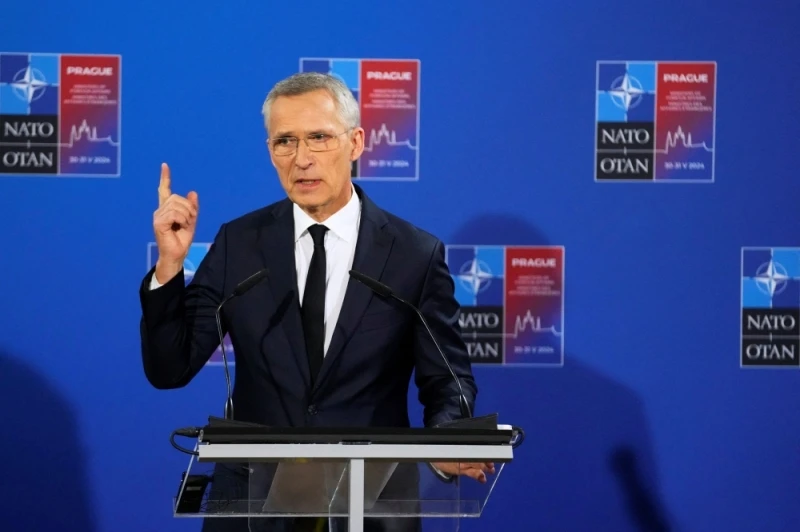NATO chief seeks 'at least' 40 bn euros a year in Ukraine aid

Stay tuned with 24 News HD Android App

NATO chief Jens Stoltenberg on Friday called on members to commit to keeping annual military aid for Ukraine at a minimum of 40 billion euros ($43 billion), after foreign ministers from alliance countries debated long-term support for Kyiv.
NATO members, led by the United States, have given the vast bulk of military aid to Kyiv to help it battle against the invasion launched by Russia in February 2022.
"Since Russia's full-scale invasion in 2022, allies have provided approximately 40 billion euros worth of military aid to Ukraine each year. We must maintain at least this level of support each year, for as long as necessary," Stoltenberg told journalists after the foreign ministers met in Prague.
"I have also proposed that allies should share this burden equitably," he said.
He said he wanted NATO's 32 countries to hammer out the "multi-year financial pledge for Ukraine" so it could be announced at a summit of leaders in Washington in July.
"We need a firm commitment for the long haul to ensure that Ukraine is able to plan, to ensure that Ukraine has the predictability they need to conduct this war of self-defence," Stoltenberg said.
He said that one way to measure each country's commitment could be to base it on gross domestic product, but the plan was not finalised.
"We will now start the work on the details of such a financial pledge," he said.
Over two years into Russia's war on Ukraine, Stoltenberg is seeking to put NATO's support on a firmer footing ahead of a possible return to the US presidency of Donald Trump.
After pressing hard at a summit last year, Kyiv has been told firmly by NATO countries -- led by the United States and Germany -- that it should not expect any concrete progress toward joining the alliance in Washington.
Last month Stoltenberg floated an overall target figure of 100 billion euros ($108 billion) over five years for Ukraine support, but that fell flat among allies confused over what it would involve.
'Trillion dollar question'
Czech Foreign Minister Jan Lipavsky welcomed Stoltenberg's latest proposal and said it seemed manageable as it only represented a small fraction of defence expenditure.
But he said how to ensure countries stuck to their commitments remained if governments change in the future, calling it "the trillion dollar question".
One area where NATO seems closer to a final agreement is a plan for the alliance to take over from the US coordination of weapon supplies to Ukraine.
So far, Washington has been in charge as NATO has stayed clear of involvement in delivering arms because of worries Moscow would see it as a provocation.
Proponents say making the alliance responsible overall could help insulate future deliveries if Trump wins back the White House, though others fear it might just add more bureaucracy to the process.
Stoltenberg said NATO had furthered the "plans to play a greater coordinating role in the provision of equipment and training".
"Practically all military aid to Ukraine -– 99 percent -– comes from NATO Allies. So, it makes sense that NATO should play a greater role in these efforts," he said.
